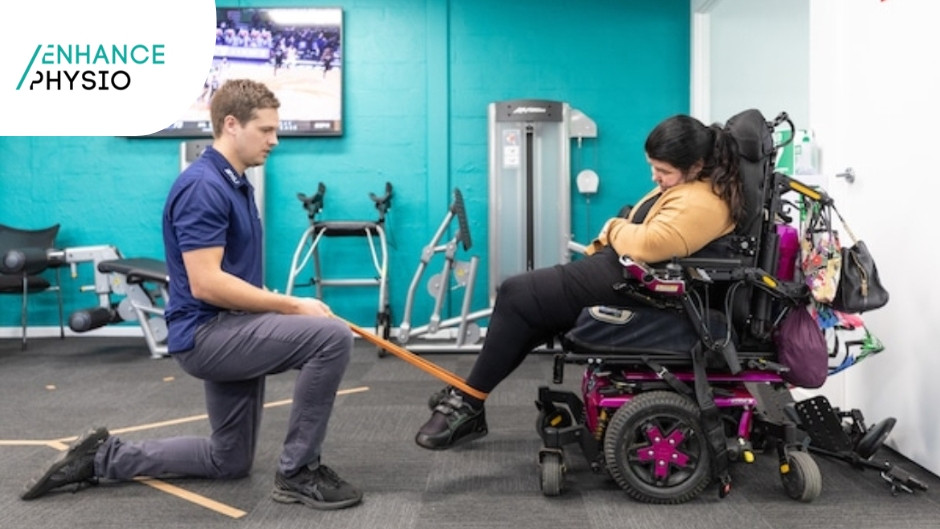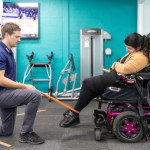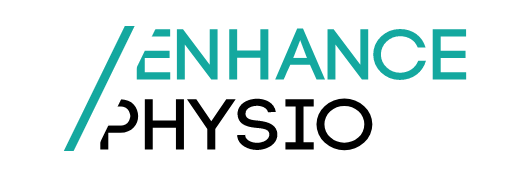Personalised Pathways for Lasting Change
Physiotherapy rehabilitation brings a world of possibilities for individuals aiming to regain mobility, strength, and comfort following injury, surgery, or periods of inactivity. At Enhance Physiotherapy, programs are designed to address the unique needs of the community by focusing on collaborative care, practical movement strategies, and personalised exercise routines. Choosing a physiotherapist Wodonga residents trust ensures ongoing encouragement and hands-on support, which helps to alleviate discomfort and foster confidence in daily activities. With guidance adapted for every stage of recovery, patients experience gradual improvements that empower them to participate fully in work, family, and recreational life. Enhance Physiotherapy’s commitment to nurturing each patient’s progress reflects the positive difference that consistent rehabilitation brings for people across our region.
Bridging The Gap Between Injury and Recovery
Getting injured is frustrating, but what happens after the initial pain fades is just as important as the injury itself. Too many people rush back into activity, thinking they’re “healed” just because the pain is gone. But healing isn’t just about feeling better; it’s about restoring full function, strength, and movement.
That’s where a proper physiotherapy rehabilitation treatment plan comes in. It’s not just a bunch of exercises, it’s a personalised roadmap designed to help you recover the right way, prevent re-injury, and come back stronger than before. Without a clear plan, you’re more likely to fall into the cycle of recurring injuries and chronic pain.
Rehabilitation is the bridge between injury and recovery, and how you cross it can mean the difference between lasting progress and repeated setbacks.
Key Reasons Why Rehabilitation Treatment Plans are Important
A comprehensive physiotherapy treatment plan is not a one-size-fits-all solution. It is a dynamic and evolving strategy built upon several crucial components.
1. Provides a personalised and comprehensive roadmap
- Initial assessment and diagnosis
The foundation of any effective plan is a thorough evaluation. A physiotherapist will conduct a detailed assessment of the patient’s medical history, physical condition, movement patterns, strength, and pain levels. This allows for an accurate diagnosis and a clear understanding of the individual’s specific impairments and functional limitations.
- Tailored to the individual
A one-size-fits-all approach is ineffective in rehabilitation. A good treatment plan is based on a thorough assessment of the patient’s medical history, current health status, lifestyle, and personal goals. It addresses the unique physical, cognitive, emotional, and social needs of the individual.
- Addresses all facets of recovery
Rehabilitation isn’t just about physical recovery. A comprehensive plan integrates various therapies and interventions, such as physical therapy, occupational therapy, speech therapy, psychological counselling, and nutritional guidance, to provide holistic care.
- Personalised interventions
Based on the assessment and goals, the physiotherapist designs a customised program of interventions. This can include a combination of:
- Manual therapy: Hands-on techniques such as joint mobilisation, soft tissue massage, and stretching to improve mobility and reduce pain.
- Therapeutic exercises: Specific exercises designed to improve strength, flexibility, balance, and endurance.
- Modalities: The use of therapeutic agents like heat, cold, ultrasound, dry needling, or electrical stimulation to manage pain and inflammation.
- Education: Providing the patient with knowledge about their condition, pain management strategies, and techniques for preventing re-injury.
2. Sets clear expectations and goals
- Establishes a direction: A treatment plan sets clear, measurable, and achievable goals, providing both the patient and the healthcare team with a sense of purpose and direction. This prevents the recovery process from feeling overwhelming and chaotic.
- Creates milestones: By outlining a realistic timeline for recovery, the plan breaks down a large, daunting goal into a series of smaller, manageable milestones. This allows the patient to track their progress and celebrate achievements along the way, which is vital for motivation.
3. Enhances patient engagement and motivation
- Fosters a sense of ownership: When patients are actively involved in the creation of their treatment plan, they are more likely to be committed to it. This collaborative process empowers them to take ownership of their recovery.
- Builds trust: The shared understanding and open communication involved in developing a treatment plan build a strong, trusting relationship between the patient and their healthcare providers. This therapeutic alliance is a significant factor in promoting patient adherence and improving outcomes.
4. Improves outcomes and facilitates progress
- Maximises effectiveness: A well-structured plan ensures that the interventions and exercises are evidence-based, targeted, and sequenced in a way that maximises recovery. It also allows for regular monitoring and adjustments based on the patient’s response to treatment.
- Reduces risk and prevents complications: By addressing specific deficiencies, such as muscle weakness or joint stiffness, the plan helps prevent complications that can arise from immobilisation or inactivity. It also includes strategies to prevent re-injury and manage pain.
5. Facilitates a multidisciplinary approach
- Promotes team collaboration: A treatment plan serves as a central document that ensures all members of the healthcare team – including doctors, therapists, social workers, and family members – are working together towards a common set of goals. This collaborative approach prevents siloed care and ensures a coordinated effort.
Final Thoughts
A physiotherapy rehabilitation treatment plan is a crucial roadmap for anyone undergoing rehabilitation. It is a personalised, comprehensive strategy designed to optimise a patient’s recovery and improve their overall quality of life after an illness, injury, or surgery.
The importance of these rehabilitation plans lies in their ability to provide structure, motivation, and focus on individual needs, setting clear goals, and utilising a variety of therapeutic interventions.
These plans empower individuals to overcome physical challenges, regain their independence, and return to a fulfilling and active life.
Take the Next Step Towards Mobility
 Wodonga is a thriving city on the Victorian-New South Wales border, known for its welcoming spirit, access to green spaces, and strong sense of local community. Enhance Physiotherapy offers trusted physiotherapy services throughout Wodonga and its neighbouring suburbs, providing convenient access to high-quality rehabilitation for people across the region.
Wodonga is a thriving city on the Victorian-New South Wales border, known for its welcoming spirit, access to green spaces, and strong sense of local community. Enhance Physiotherapy offers trusted physiotherapy services throughout Wodonga and its neighbouring suburbs, providing convenient access to high-quality rehabilitation for people across the region.Ready to learn how a focused rehabilitation plan can support long-term health and comfort? Enhance Physiotherapy is devoted to helping the Wodonga community through friendly service and tailored advice. For information or to arrange a consultation about the importance of physiotherapy rehabilitation plans, connect with Enhance, the physio Wodonga community chooses for practical care. Take action today and see the benefits for yourself.













